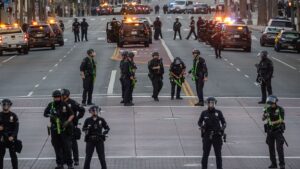In a significant move that affects various sectors of the economy, President Trump’s administration has announced that its mass deportation efforts will temporarily exempt certain industries. This decision impacts key areas known for employing a large number of undocumented workers.
Industries Temporarily Exempt from Deportation Efforts
The Trump administration has decided not to target farms, hotels, and restaurants in its current deportation strategy. These sectors are widely recognized for their reliance on immigrant labor, which has raised questions about the broader implications of such a policy.
Given the economic importance of these industries, the decision aims to mitigate potential labor shortages that could arise from strict immigration enforcement. Farms, in particular, are heavily dependent on immigrant workers for harvesting crops, while hotels and restaurants rely on them for various operational roles.
Potential Economic Implications
This exemption highlights the delicate balance between enforcing immigration laws and maintaining economic stability. The agricultural sector, for instance, has expressed concerns over the availability of workers, which could affect food production and prices. Similarly, the hospitality industry fears disruptions that might impact service quality and business operations.
By allowing these industries to continue employing undocumented workers, the administration appears to be acknowledging the vital role these employees play in sustaining economic activities. However, this decision may also spark debates about the fairness and consistency of immigration policies.
For further information, visit NPR’s coverage on the topic here.







Be First to Comment